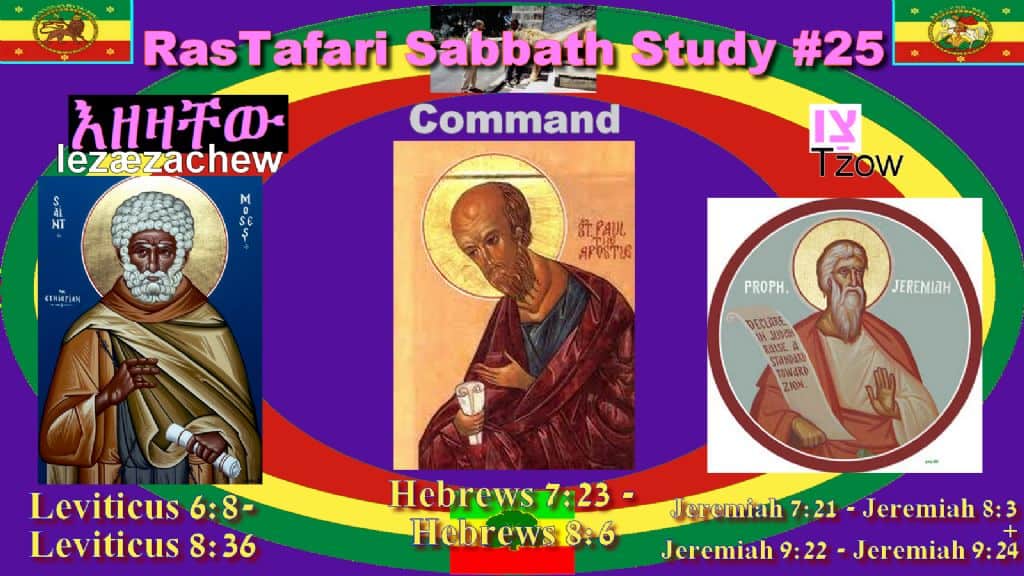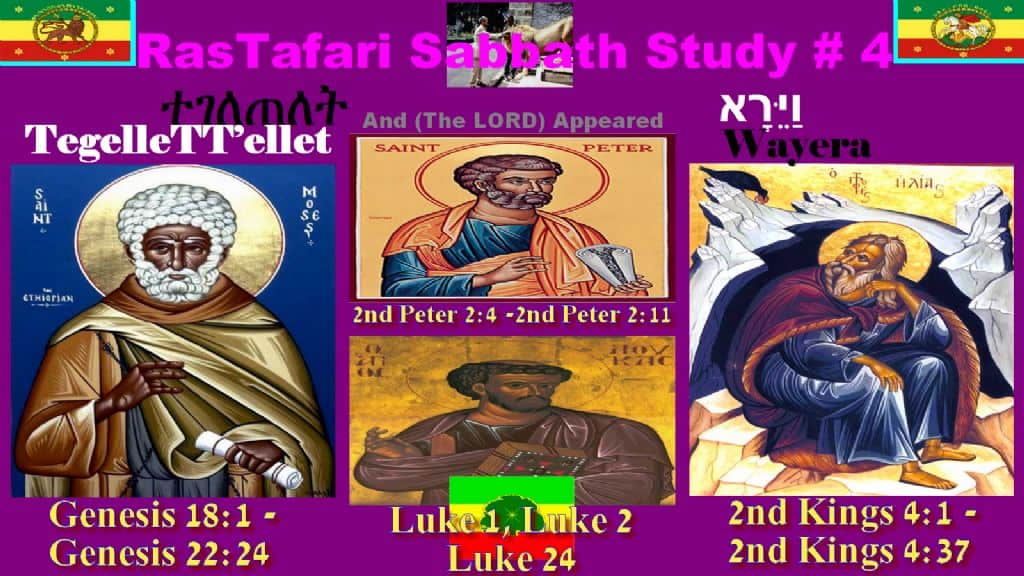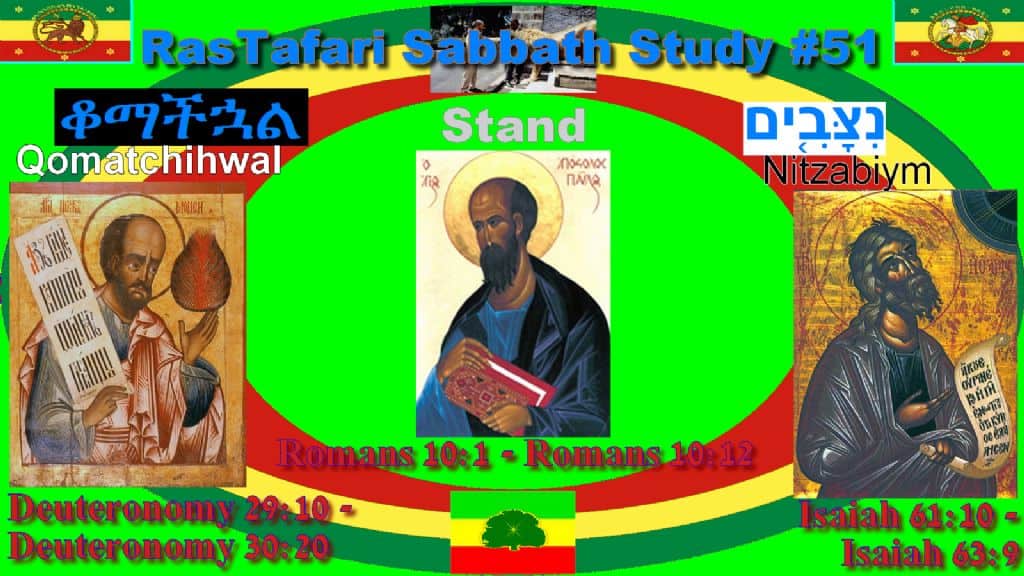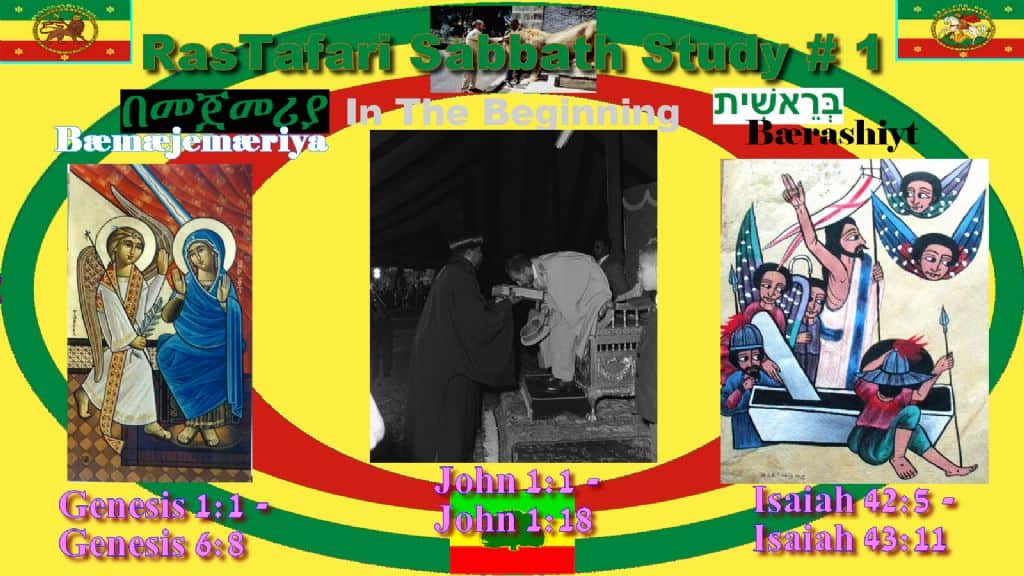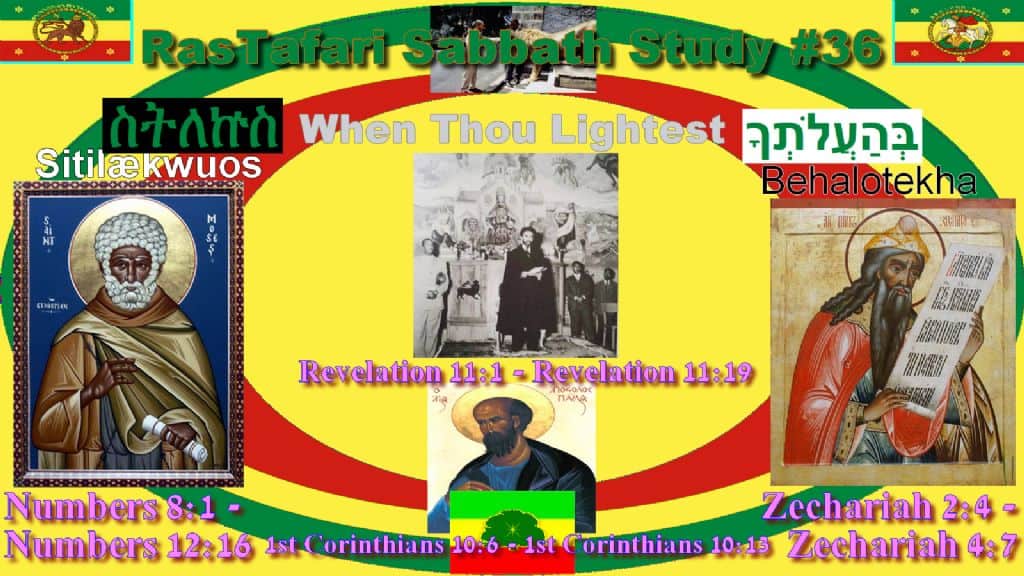This Week's Portion #25
Tzav | צו | "Command!" እዘዛቸው | Izzezachew
*For a PDF version of All the Torah Portions Schedule, click here to download!
2. Prophets Reading
Jeremiah 7:21-8:3; Jer 9:22-24
3. New Testament Reading
Hebrews 7:23-8:6
Portion Outline - TORAH
- Leviticus 6:8 | Instructions concerning Sacrifices
- Leviticus 7:11 | Further Instructions
- Leviticus 8:1 | The Rites of Ordination
Portion Outline - PROPHETS
- Jeremiah 7:16 | The People's Disobedience
Portion Study Book Download & Summary
VAYIKRA Hebrew Book of Leviticus - Torah Portion Vol.3 (FREE PDF)
The twenty-fifth reading from the Torah and second reading from the book of Leviticus is called Tzav (צו), which means “Command.” The name comes from the first word of Leviticus 6:9, where the LORD says to Moses, “Command Aaron and his sons ...” Tzav reiterates the five types of sacrifices introduced in the previous portion but this time discusses the priestly regulations pertaining to them. The last chapter of the reading describes the seven-day ordination of Aaron and his sons as they prepared to enter the holy priesthood.
Portion Commentary
Keep the Fire Burning
Thought for the Week:
The altar fire was holy fire ignited by the presence of God. This sacred fire was never to be extinguished. “The fire on the altar is to be kept burning on it. ... [The] fire shall be kept burning continually on the altar; it is not to go out” (Leviticus 6:12–13).
Commentary:
The Torah says. The priests used flames from the altar to light the menorah, and they used the coals from the altar to burn the incense on the golden altar. Fire brought from some source other than the altar is referred to as strange fire.
How did they keep the fire burning when transporting the altar? The Tabernacle was made to be portable. Numbers 4:13 explains that when it was time to move the Tabernacle, they were to take the ashes from the altar and spread a purple cloth over the top of it. How would this work if a fire was continually burning on the top of the altar? Rashi explains that they covered the holy flames with a large, overturned copper pot. Starved of oxygen, the fire would be reduced to hot, live coals that could be rekindled when the coverings were removed from the altar.
The altar can be compared to a man’s heart. Just as the fire had to be kept burning on the altar, so too we must keep our hearts aflame with the love of God. Yeshua teaches that it is our duty to love Him with all our hearts, souls and minds and to show that love by loving our neighbor as ourselves. Fire is a good analogy for love. Just as a fire sometimes burns hot and bright, we sometimes feel love passionately. The love of God can fill us with an intense yearning. It can blaze forth from us with acts of compassion and kindness. At other times, a fire burns low but steady. The love of God can warm our hearts even when we do not feel the intense heat of passion. Whether it is blazing hot, burning steadily or smoldering in bright coals, the important thing is that we never let the love of God be extinguished. We should not feel spiritually depressed or unworthy when the flame has burned low, as if there is something wrong with us. The Tabernacle altar demonstrates that it is natural for a fire to burn hot and then burn low. Instead of feeling as though something has gone wrong with our spiritual lives, we need simply attend to our duties. Remove the ashes. Add fresh fuel, fan the coals and stoke the fire of love again.

